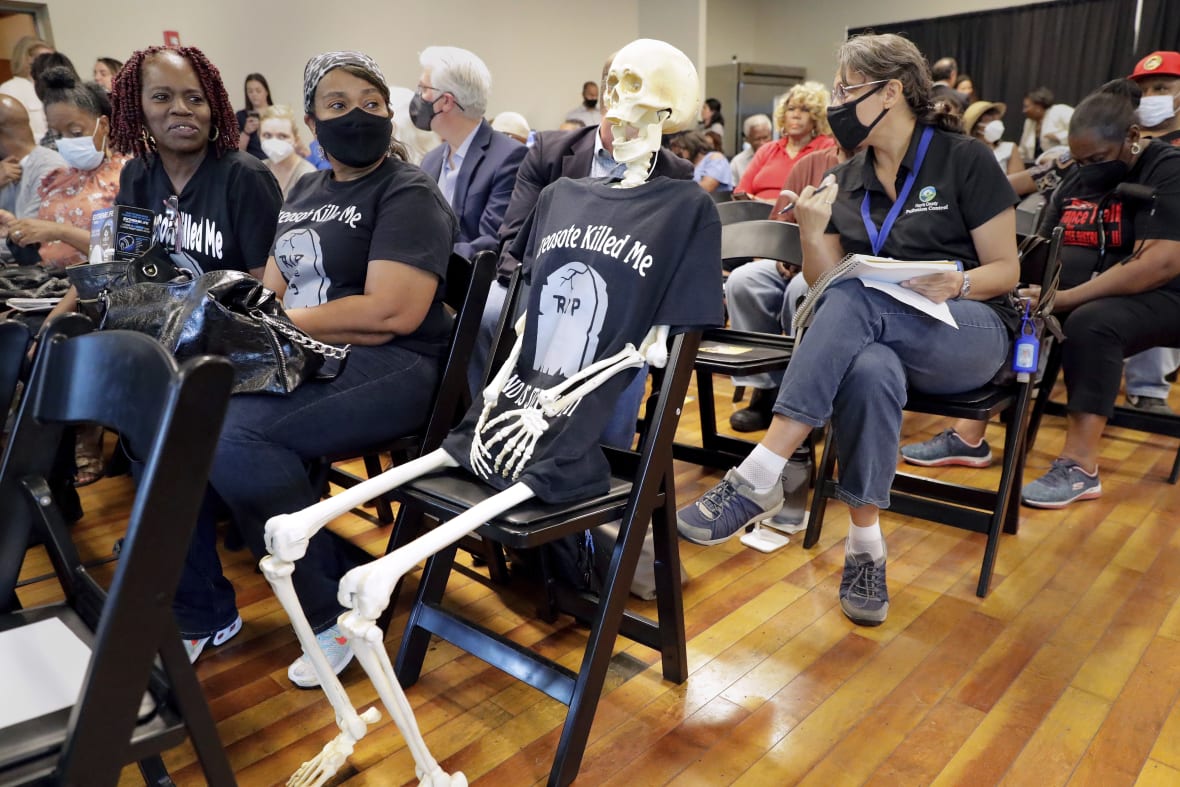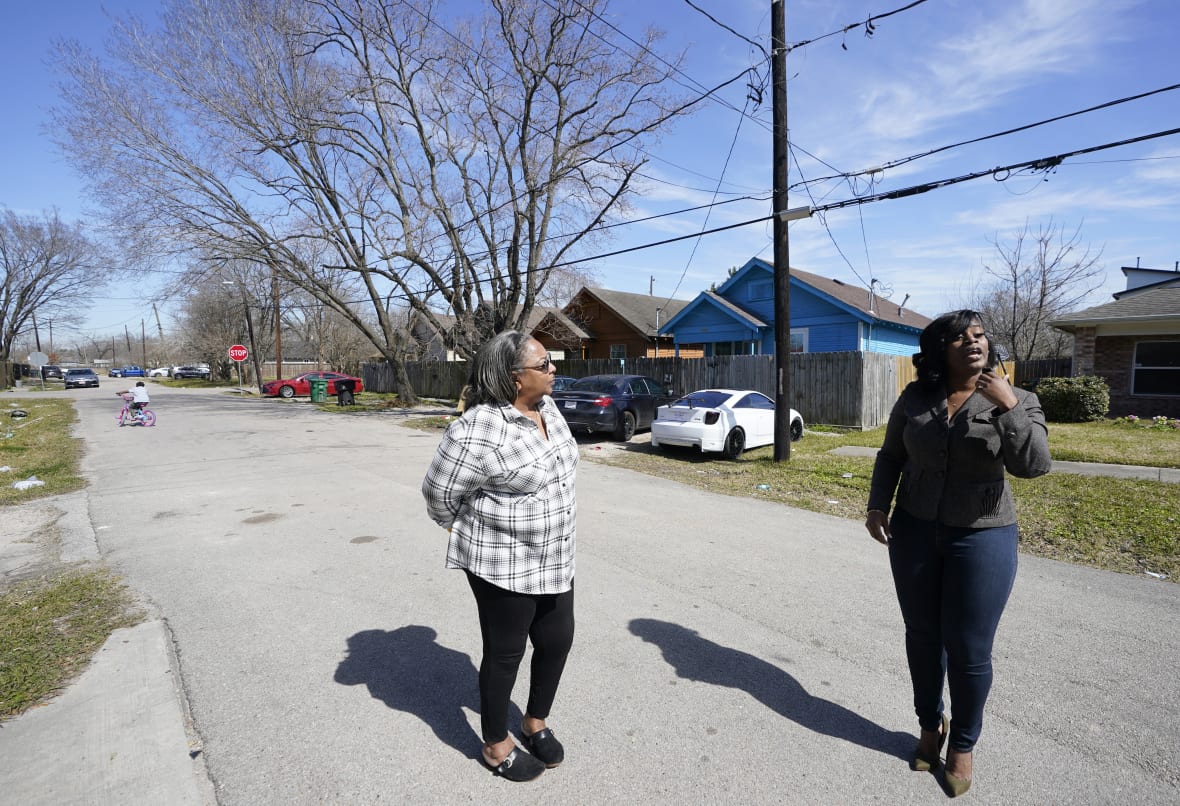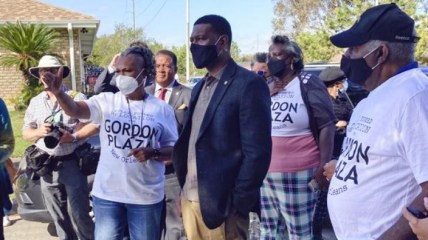Houston to relocate residents in historically Black area over cancer concerns
Relocating families from among the 100 properties that have been affected by the contamination could cost up to $26 million.
HOUSTON (AP) — Houston plans to spend millions of dollars to relocate residents from neighborhoods located near a rail yard polluted by a cancer-linked wood preservative that has been blamed for an increase in cancer cases, the city’s mayor announced Thursday.
Texas health officials in 2019 identified a cancer cluster in Houston’s historically Black Fifth Ward and Kashmere Gardens neighborhoods. A second cluster was identified in 2021. Health officials have found higher rates of respiratory cancers as well as childhood cancers, including acute lymphoblastic leukemia.

Residents and local officials have long blamed the high number of cancer cases on contamination from a Union Pacific rail yard near both neighborhoods. Creosote, which has been associated with an increased risk of contracting cancer, was used for more than 80 years at the site until the 1980s. City officials say the contamination has reached the groundwater in the neighborhoods.
In September 2022, the Houston Health Department announced that testing of surface soil samples from around the Union Pacific rail yard found dioxin, a highly toxic chemical compound associated with cancer and other health risks.
Mayor Sylvester Turner said the city has spoken with Union Pacific for months about helping relocate residents, but the company has indicated it wants to wait until additional testing is complete. Testing of the area through a consent order from the Environmental Protection Agency is set to be conducted through September, with the results scheduled to be released by December.
Union Pacific “has an open invitation to help fund this (relocation) effort and to participate in this process, if they so choose. But they not only have a legal obligation, they have a moral obligation. How many more families do you need to see suffer? How many more children must die before they have a moral obligation to step in?” Turner said during a news conference.
In a statement, Union Pacific said additional testing is “required to accurately determine the true extent and source of contamination in the neighborhood. Relocation should be based on a human health risk assessment.”
Union Pacific said it’s focused on the community’s safety, and it has “made measurable progress with on-site clean-up since acquiring the property in a 1997 merger and are committed to finishing the job.”
Residents of the neighborhoods say they have long felt their concerns for their health and safety have been ignored by the railroad company and by local officials.
Pamela Matthews, 61, who has lived in the Fifth Ward neighborhood since she was 5 years old, said Thursday was the one-year anniversary of her mother’s death from cancer. Her brother is currently fighting cancer. Her family home is two blocks from the Union Pacific rail yard.

“My kids, my grandkids, that was the family home. We put everything we had vested into that property and we made it through and we were happy and we had God and we didn’t think for one second that we were at risk,” Matthews said during Thursday’s news conference.
Turner said relocating families from among the 100 properties that have been affected by the contamination could cost up to $26 million. The city is looking at internal as well as federal funding to help pay for the relocation program, which will be put together by a strike force made up of health, housing and community development officials.
No timetable was given for when the relocation process could be completed. Turner said the relocation effort will extend beyond his administration as his final term as mayor concludes at the end of December.
TheGrio is FREE on your TV via Apple TV, Amazon Fire, Roku, and Android TV. Please download theGrio mobile apps today!

